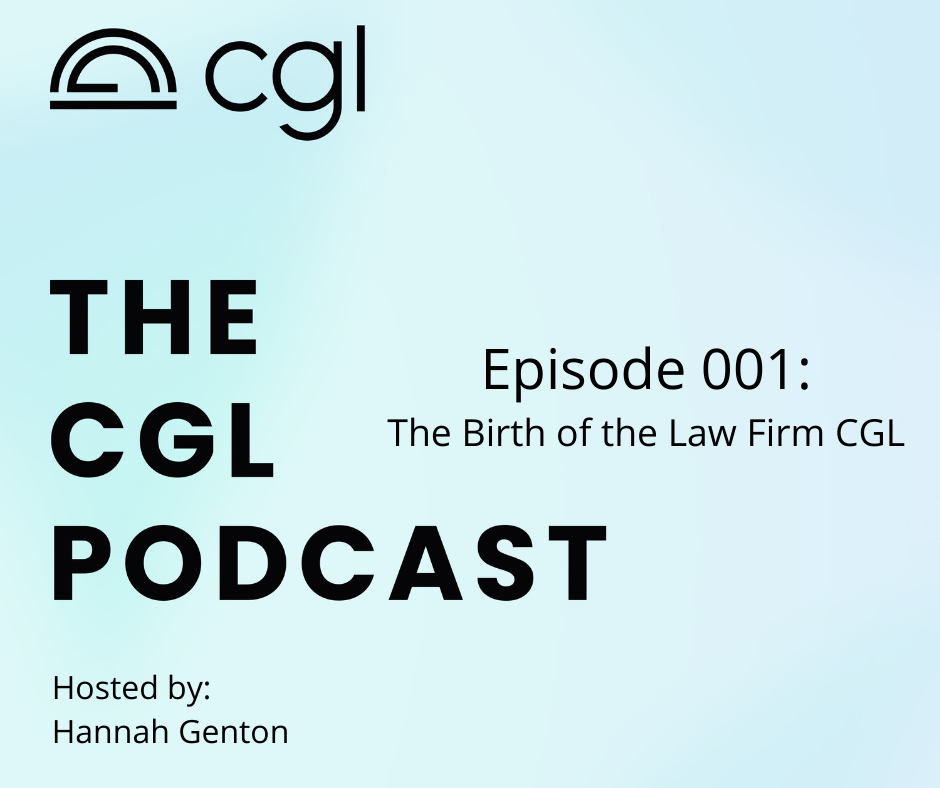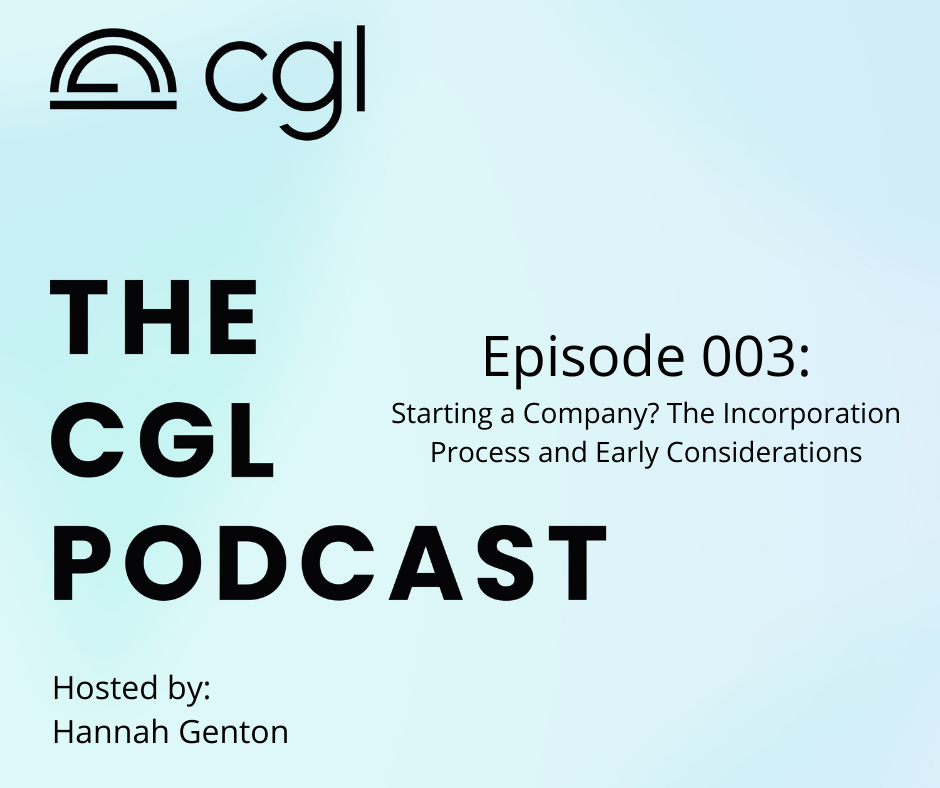As attorneys with Silicon Valley experience, we’ve worked with countless companies as they’ve moved from founding to funding Here, we’ll answer some of the questions we’re most frequently asked and provide some tips and insights we’ve picked up throughout our careers.
FAQs about Forming a Corporation:
Understanding Founder’s Equity
Founders receive common stock when they form the entity. This process is governed when a founder contributes their intellectual property (IP) or whatever their creations are for the company into the corporate structure. The founder is granted common stock to show their ownership for that transfer. So you need to get that initial equity which is usually a combination of IP and cash.
Why it’s Important to Clearly Set Expectations Around Equity
The number one reason most startups fail is not that they can’t raise capital, it’s because of issues within the founding team. It’s therefore critical to have very clear agreements outlining who owns what and what happens to that ownership if a party were to leave.
These agreements should be reached at the beginning of the startup’s lifecycle, not when issues start to arise. It’s far easier to negotiate with your founding partners when you’re all on the same page. Moreover, easier and more affordable to resolve disputes when the outcome has been clearly defined in advance of any dispute or falling out.
What is Equity Vesting?
Vesting is a mechanism that allows you to get equity subject to you meeting certain conditions. For example, you may own 30% of the business, but you need to work for four years before you reach that level of ownership. There are typically time-based milestones that you’ll reach in the interim period, often commencing from the one year mark.
Startup Founder Equity Vesting Schedule
Here’s what a typical Silicon Valley vesting schedule looks like:
There are 4 founders, each entitled to 25% ownership over 4 years, with a 1-year cliff and a monthly or quarterly vesting schedule thereafter.
So, after 1 year, a founder will receive 6.25% ownership with an additional 1/36th share of that initial 25% accruing monthly thereafter.
Founders that leave before the 1-year cliff aren’t entitled to their equity.
The Benefits of Equity Vesting
- A great tool to keep your team onboard
No matter how much you trust your co-founders, and how great things are in the beginning, disputes aren’t uncommon. Equity vesting protects your company from any founding member walking out with a huge chunk of your company that you can’t easily get back. In fact, you’d need to purchase the equity back from them, which is often complicated and expensive. Vesting is a mechanism that encourages the founding team to fulfill their initial commitments to the venture.
- A tool if you pursue traditional venture funding
You may want to fundraise down the line. Potential investors will almost always require you to subject your shares to vesting. From an investor’s perspective, they want to ensure that the founder is committed before they put their capital into the company.
Mechanisms to Protect Your IP
- An NDA or a non-disclosure agreement – a signed document that establishes confidentiality so employees are prohibited from stealing or sharing your ideas.
- Ensure that the IP is properly transferred to the company. Make sure that the company is the structure that owns the IP, not the individuals creating it.
You can read more about this in our blog post Essential Terms for Contractor Agreements.
Check out https://cgl-llp.com/podcasts/cgl004 to learn more about the topics outlined above and other FAQs about forming a corporation, including:
- What is the 83(b) election?
- Two types of acceleration
- Can you hire employees and pay them in stock?
- What is the difference between a stock and an option?
- Things to consider when getting advisors
- Why are employees given equity out of a pool versus a stock?
- The corporate documents you need to organize.
Disclaimer
The materials available at this website are for informational purposes only and not for the purpose of providing legal advice. You should contact your attorney to obtain advice with respect to any particular issue or problem. Use of and access to this website or any of the e-mail links contained within the site do not create an attorney-client relationship between CGL and the user or browser. The opinions expressed at or through this site are the opinions of the individual author and may not reflect the opinions of the firm or any individual attorney.



